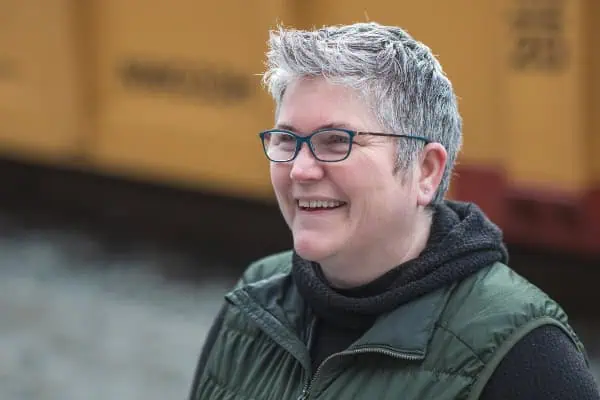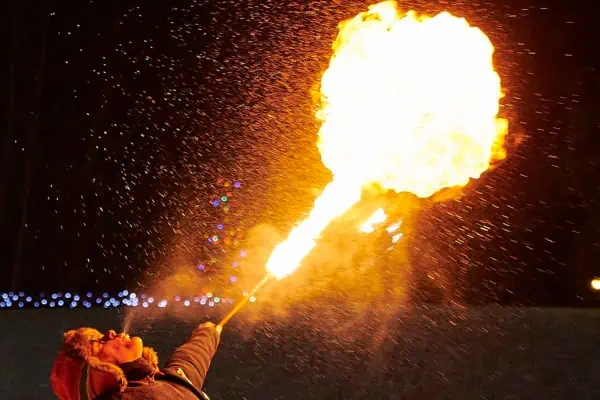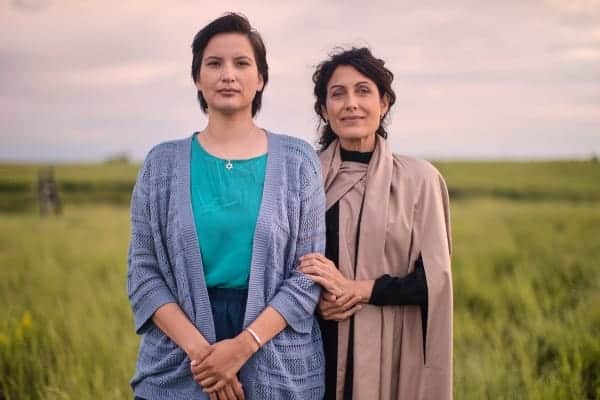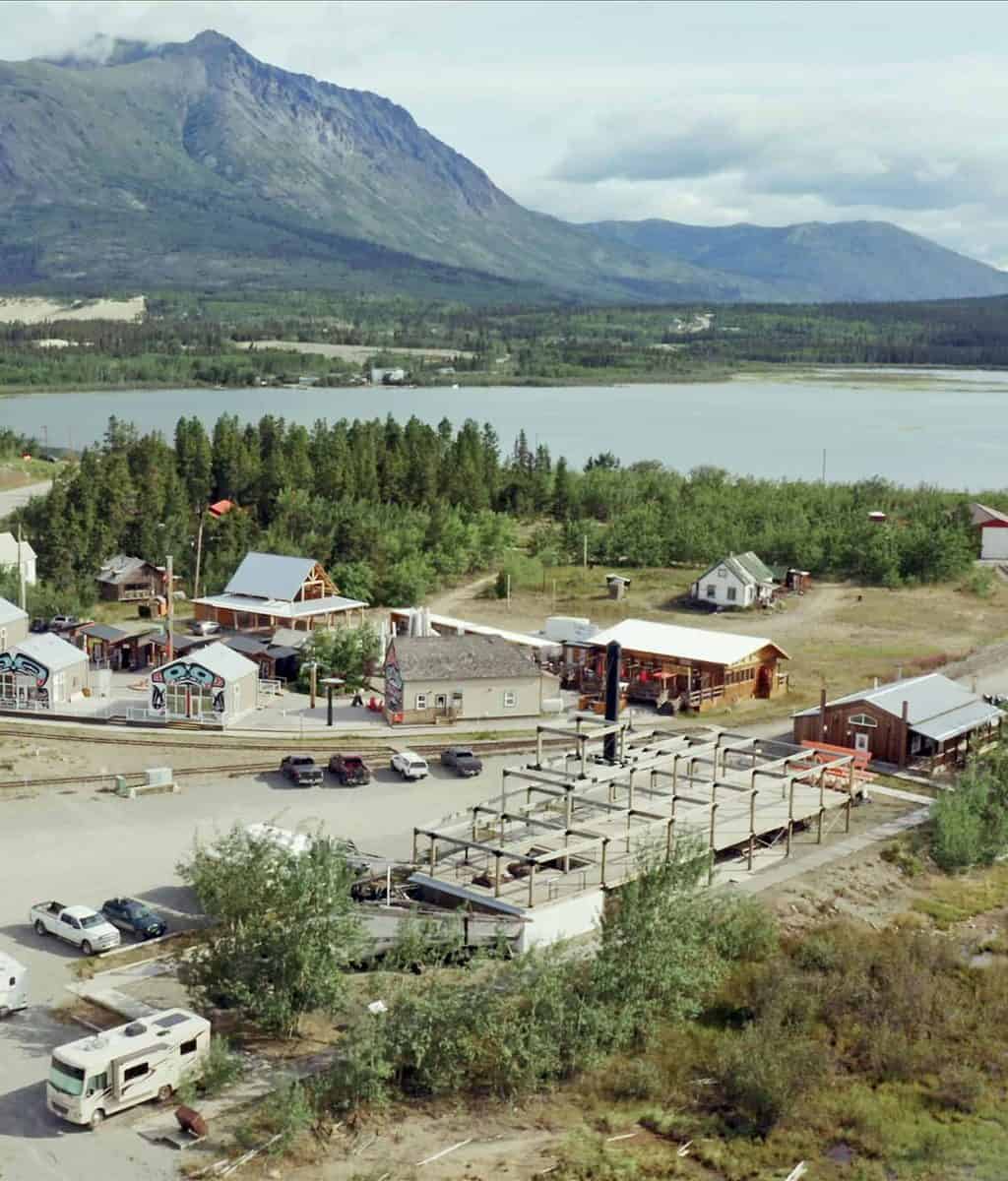
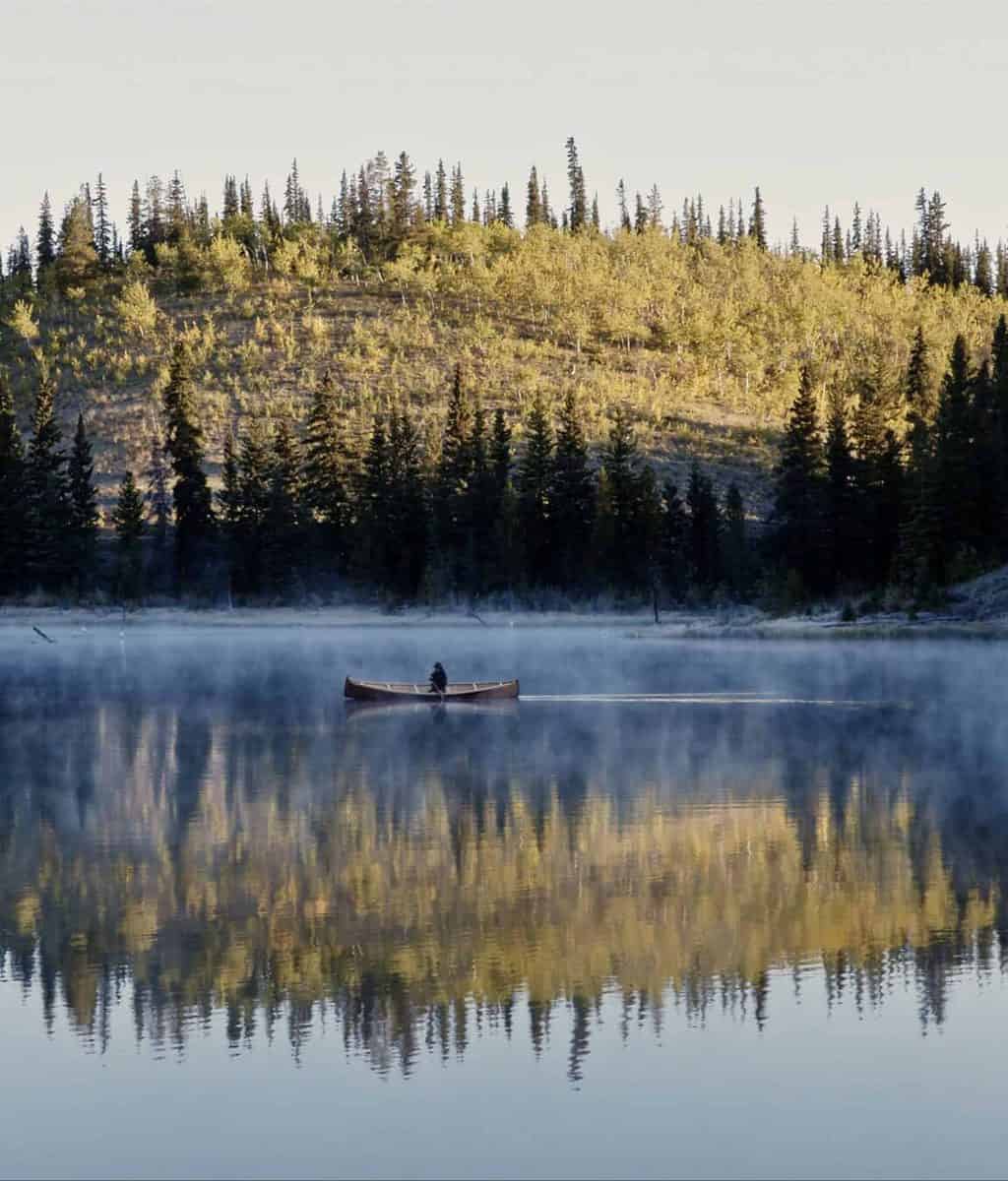
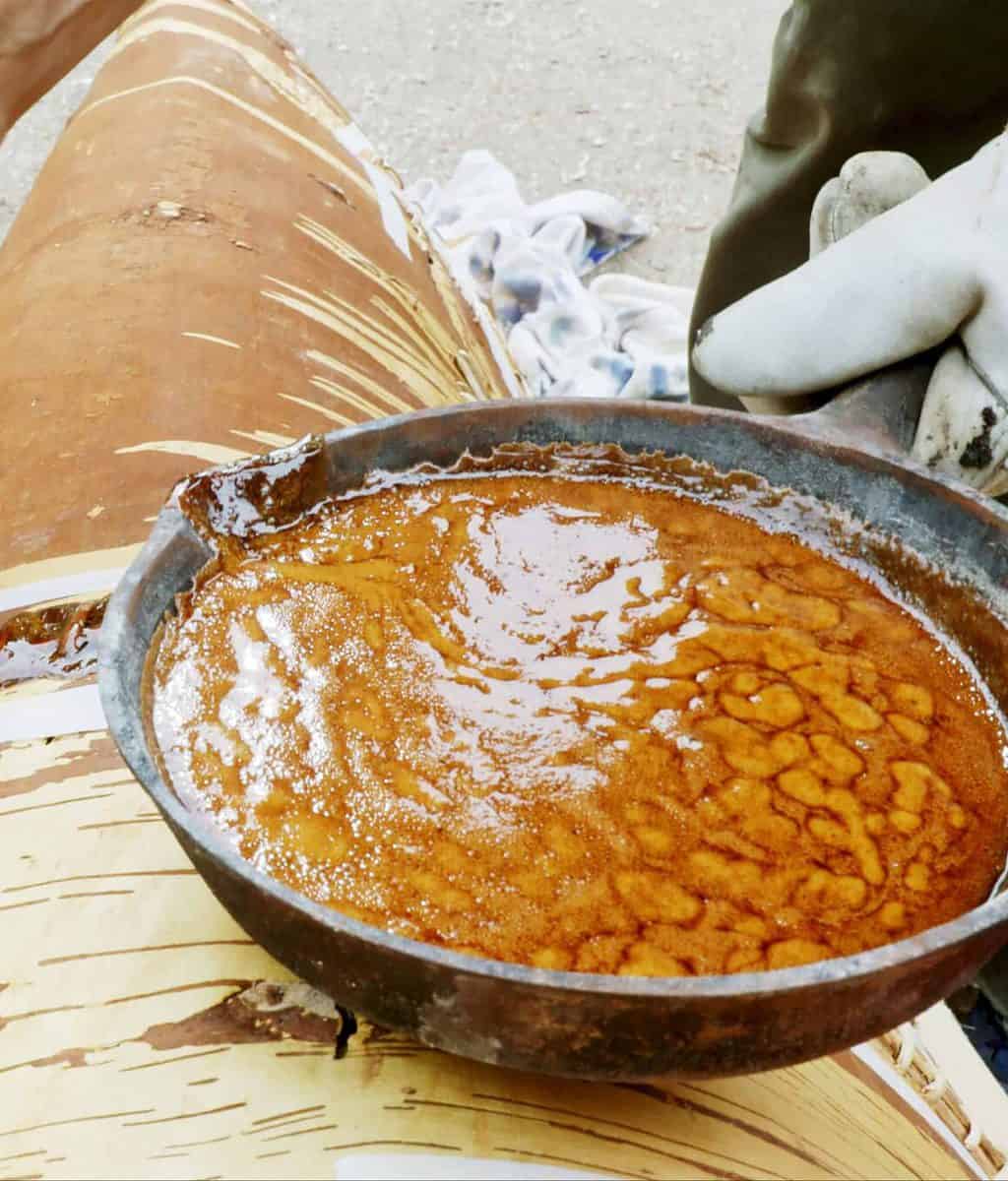
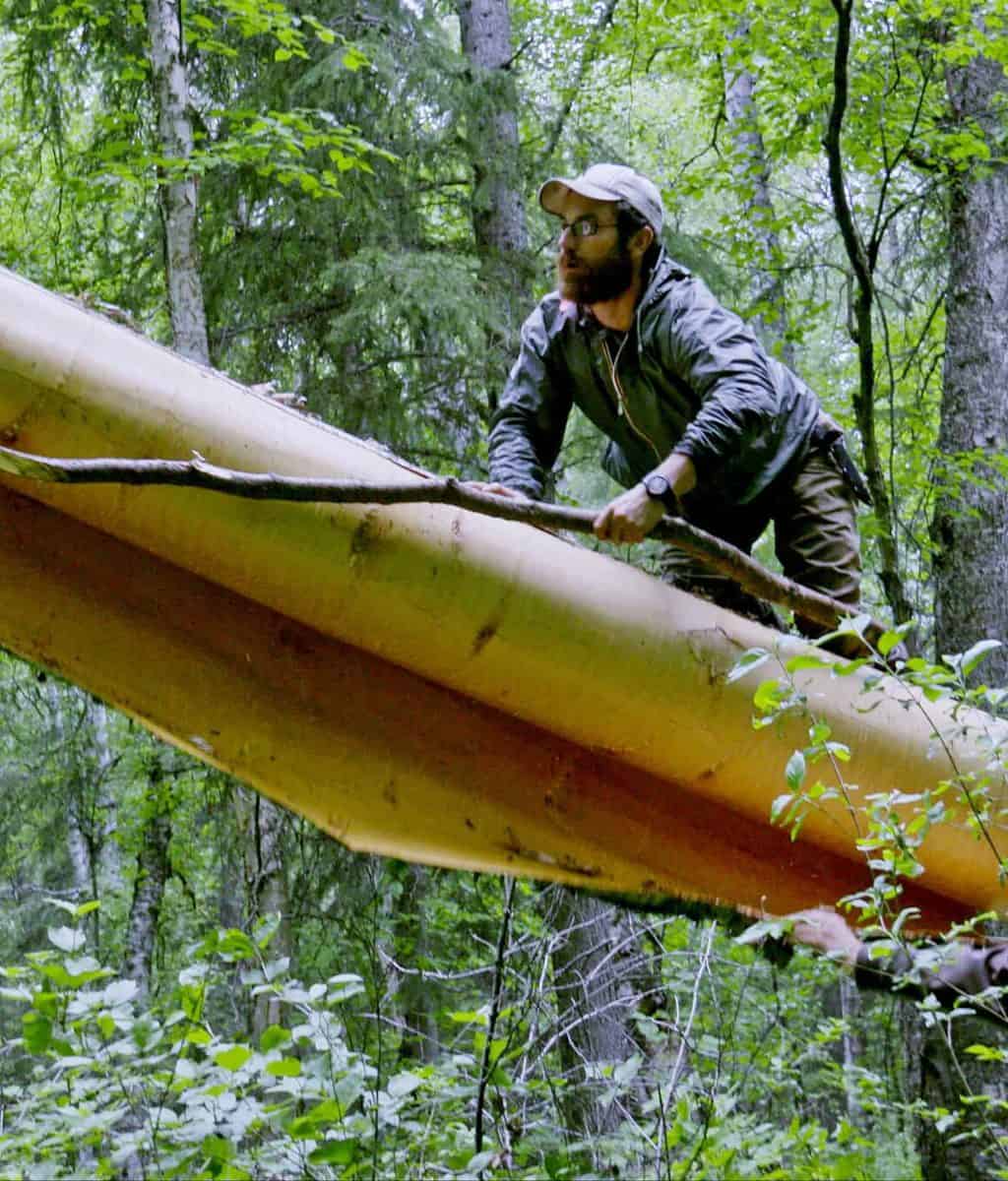
There is a moment during the construction of a canoe when its true form is revealed. A hull drops into place. The elegant arc of a bow cuts forth. A similar process sometimes occurs in life, when a person finally discovers their true path.
Fritz Mueller and Teresa Earle’s feature documentary Voices Across the Water, a co-production with the National Film Board of Canada (NFB), follows two master boat builders as they practise their art and find a way back to balance and healing.
The feature-length documentary recently made its community premiere at the 2022 Adäka Cultural Festival in Whitehorse.
“We are thrilled we got to show the film first to the community, as part of the festival,” said Earle. “The film screened on the same day as the traditional watercraft builders were gathered. We are so grateful to all of these boatbuilders for welcoming us into their world.”
Mueller and Earle, partners in life and work, own Whitehorse-based production company Sagafish Media, a boutique prodco with a northern point of view. They develop and produce stories created, filmed and edited in Northern Canada. Co-producer Shirley Vercruysse, who helms the NFB’s BC & Yukon Studio, in Vancouver, B.C., met the pair over several visits to Whitehorse.
“I was interested in how each of their projects was deeply rooted in the physical environment of the Yukon and also revealed a deep connection with their subjects who, in turn, would bring audiences into their world,” said Vercruysse. “Voices Across the Water held the same potential, so it was with that intention that we embarked upon the journey of co-producing with Teresa and Fritz.”
Mueller and Earle have long-standing relationships with both key film subjects, Alaskan Tlingit master carver/artist Wayne Price and Yukon-based francophone artist Halin de Repentigny.
For Price, fashioning a dugout canoe from a single, massive red-cedar tree is a way to reconnect to the ancestral knowledge of Indigenous craftspeople. In the film, Price’s long hours of labour are buoyed by silly jokes and deep conversation with his new young apprentice, Violet Gatensby, a Carcross/Tagish First Nation artist and carver from Carcross, currently living in Whitehorse.
“Wayne is lining up ten-thousand years of culture,” said Mueller, who, as the son of a wood craftsman, has followed Price’s work for many years, including portraying him in the film Journeys to Adäka. “We are at a period of history where we’re with the last canoe builders. These are important regional stories; they’re the last ones in their region.”
In the film, Price spoke emphatically about his love for the art, from his workshop in Haines, Alaska: “When you start that dugout canoe, you make that dedication to that dugout, 24/7, till it’s done.
“The whole world’s moving so fast, you have the dugout in your life, gives you a chance to slow it down. You got to let time heal.”
“Wayne believes the physical touch of wood and water helps define who we are and connects us to our ancestors,” said Mueller. “Access to this knowledge keeps us grounded in the values and wisdom of the past, but it’s also an opportunity to better understand who we are in the current moment, and the challenges of where we are going. Hopefully it makes us wiser.”
Francophone artist Halin de Repentigny hand-makes birchbark canoes, like those once used by the voyageurs. Harvesting raw materials from the Yukon forest, near his home in Dawson City, Halin works in painstaking fashion to create his light, strong vessels, lovingly embellished with his fanciful artwork.
“I kind of quit for a couple of years. When you do it in the bush it’s more organic because, like, that’s where it should be done,” said de Repentigny. “But then I thought, well, you can do it in the yard here, at least two a year, just to keep the tradition and to get better at it.
“Every time you make a birchbark canoe, that’s one more that we didn’t have, and they’re not easy to do.”
Far from being a how-to video, the poetic film emphasizes the rhythmic cadence of chipping, adzing and stitching bark, to fashion boats.
“There’s a meditative quality to making something by hand; it’s similar to the ‘zone’ that athletes get into,” said Mueller.
“There’s also something about the paddling cadence. Wayne says there’s no space to be angry while canoeing, that paddling actually displaces negative thoughts. When you stay in a positive space for a long time, you form new patterns of thinking and emerge at the end a different person. I’m convinced that’s part of the healing process.”
While Voices Across the Water is starting its journey on the film festival circuit, the film will eventually be made available for free streaming across Canada on the National Film Board of Canada’s platform, nfb.ca. Northwestel Community TV will also broadcast the film in the Yukon and Northwest Territories. Until then, communities interested in showcasing the film can contact the NFB at [email protected] for a film copy and more information.

